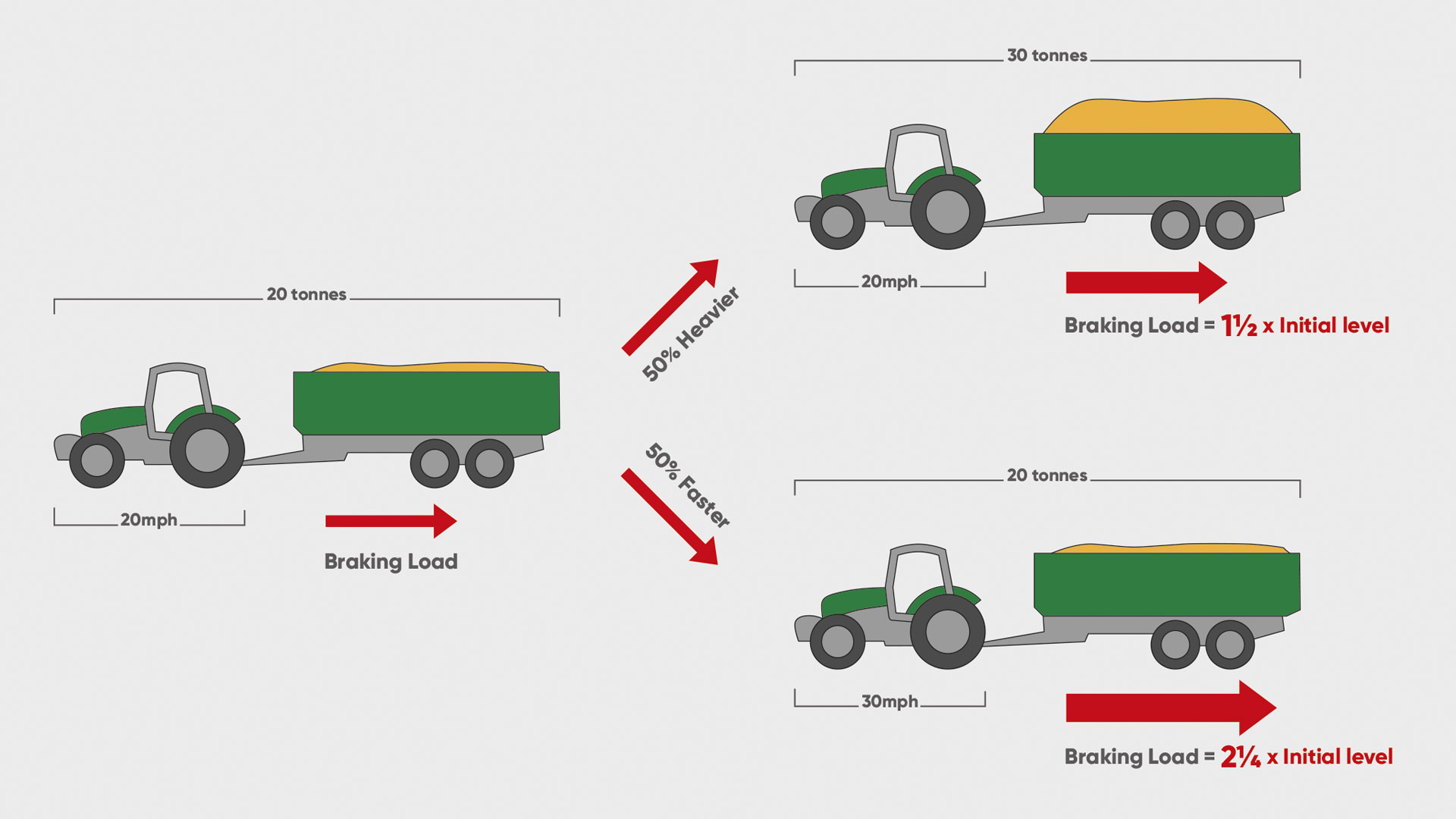
If you increase speed or add weight to a vehicle, you would expect the braking system to work harder in order to stop the vehicle.
However, does a little extra weight or a bit more speed have the same effect on braking ability? The answer is no!
Speed has a much greater effect.
Increasing a tractor-trailer combination’s weight by 50% (e.g., from 20 tonnes to 30 tonnes) while travelling at the same speed, causes braking system load to increase by 50% or 1 ½ times. However, if the tractor and trailer remained at the initial weight yet travelled 50% faster (20mph to 30mph), braking load would increase by 125% which is 2 ¼ times the initial braking load.
Travel speed is much more important.
Many trailers and their braking systems were never designed to exceed 32 km/h (20mph). Today they are towed by tractors which can travel much faster. It is therefore vital that both the tractor and trailer braking systems have the ability to work in tandem for today’s road speeds.
Trailer brakes should match the tractors.
Courtesy of the Agricultural Engineers Association.




